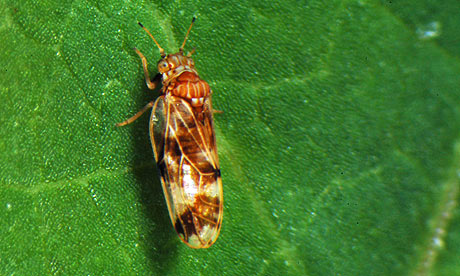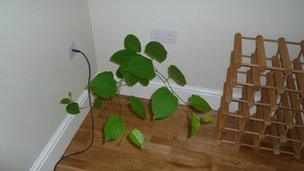The troublesome plant arrived in Britain on a boat from Japan in 1850 at the request of the Royal Botanic Gardens of Kew.
Horticulturalists across Europe at first celebrated knotweed for its beauty and agricultural applications, so much so that in 1847 it was named the 'most interesting new ornamental plant of the year' by the Society of Agriculture and Horticulture at Utrecht in Holland.
But it soon became a major problem for homeowners and gardeners and it was made an offence within the Wildlife and Countryside Act 1981 to let it grow in the wild.
The plant's extensive deep roots can penetrate roads, concrete, damage foundations, drains and even flood defences.
But knotweed cannot be dug out of the ground, as if less than a gram of its roots is missed it will rapidly regrow.
Then, in the most chilling case to date, Kenneth McRae, 52, killed his wife unlawfully before committing suicide because of the troublesome plant.
The lab technician battered his partner Jane, 55, with a bottle of perfume as she lay in their bed, causing fatal head injuries.
In a chilling suicide note, he said he killed his wife because his mind had been 'disturbed' by knotweed at their home in Rowley Regis, West Midlands.
He wrote: 'I believe I was not an evil man, until the balance of my mind was disturbed by the fact there is a patch of Japanese Knotweed which has been growing over our boundary fence on the Rowley Regis Golf Course.'
He claimed golf course managers had been made aware of the problem but nothing had been done.
After trying to curb the weed's growth unsuccessfully, he said the risk of structural damage and legal battles 'led to my growing madness.'
http://www.dailymail.co.uk/news/article ... e-out.html
another article
http://www.newsweek.com/2014/07/11/japa ... 57257.html






